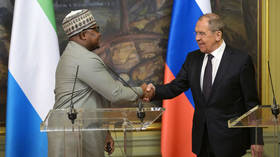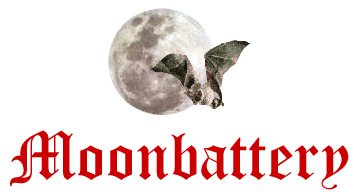Euro-Muslim Race War in North Africa: Reliving the Battle Algiers, by Guillaume Durocher
I recently had the pleasure of participating in a podcast with Fróði Midjord discussing the classic 1966 film by Italian director Gillo Pentecorvo, The Battle of Algiers. This was part of Guide to Kulchur’s excellent “Decameron Film Festival,” which is taking advantage of confinement to interview a range of prestigious speakers, from Jared Taylor to Alexander Dugin.
I will not repeat what I say in the show, except to say that I strongly recommend you watch the film if want to get a sense of how cruel and brutal race war in a multiethnic country can be.
The film’s message is ultimately pro-Arab, but Pentecorvo’s dedication to newsreel-style realism – what he called la dittatura della verità (the dictatorship of truth) – keeps the film straight, balanced, and brutally honest in its portrayal of Arab nationalist terrorism, intimidation, and abuse of trust. (Unlike say, Tom Cruise’s quite trite and saccharine The Last of the Samurai, though having a similar anti-Western nationalist message.)
The violence of the Algerian War belongs to our recent past: 1 million European settlers, supported for a time by the French State, faced off against 10 million Muslims led by the ruthless nationalist fighters of Algeria’s National Liberation Front (FLN). After eight years of struggle, and despite total military victory, France left Algeria and virtually all of those 1 million Europeans, who had been born and raised in Algeria, were forced to abandon everything and flee abroad.
This outcome was due to President Charles de Gaulle, who had made a strategic decision: France must cut her losses in Algeria rather than face perpetual conflict. In particular, De Gaulle did not believe that France could “integrate” as full French citizens Algeria’s Muslims, who in addition to numbering 10 million had a high fertility rate. He privately told an adviser:
It is very good that there are yellow French, black French, brown French. They show that France is open to all races and has a universal vocation. But on the condition that they remain a small minority. Otherwise, France would no longer be France. We are still primarily a European people of white race, Greek and Latin culture, and Christian religion.
Let’s not be under any illusions! Have you been to see the Muslims? Have you looked at them with their turbans and djellabas? You can see that they are not French! Those who advocate integration have the brain of a hummingbird, even if they are very knowledgeable. Try to mix oil and vinegar. Shake the bottle. After a while, they separate again.
The Arabs are Arabs, the French are French. Do you think the French body politic can absorb 10 million Muslims, who tomorrow will be 20 million, after tomorrow 40? If we integrated, if all the Arabs and Berbers of Algeria were considered French, would you prevent them from settling in France, where the standard of living is so much higher? My village would no longer be called Colombey-the-Two-Churches but Colombey-the-Two-Mosques!
It’s striking how divided the Europeans were throughout the Algerian War, particularly between the settlers and the various actors of mainland France. The Europeans had a bad conscience. They quite naturally dominated Algeria, but their egalitarian ideology – stemming from the French Revolution – demanded that they in theory say that the 10 million Muslims, who faced systematic discrimination, would one day be fully-fledged French.
When De Gaulle had consolidated his position in power after 1958, he decided to allow Algeria to become independent through a referendum. The result was absolute chaos as the officers who had fought in the war launched a failed coup to prevent this. Then, military officers and numerous regular soldiers and settlers created the Secret Army Organization (OAS), launching a massive terrorism campaign to prevent the referendum against the Arabs and the French State (with numerous assassination attempts against De Gaulle himself).
The Muslims too were divided by ethnicity (Arabs, Berbers, Tuaregs . . .) and political clan. The FLN ruthlessly destroyed rival groups, settled scores within their organization through murder, and brutalized wavering villagers to side with them.
If I have one caveat about the film, it is the very Marxist/Third-World epilogue. In addition to being rather confused and brusque, it seems rather historically inaccurate. The film suggests that though the Arabs’ terrorist uprising in Algiers failed, the Algerian people spontaneously rose up as a kind of irresistible force, which the French had no choice but to bow to. In fact, the decision to leave was very much De Gaulle’s, even if we recognize the long-term pressures and costs of keeping Algeria French.
While De Gaulle may have left Algeria in part to keep France a racially and religiously homogeneous nation, this did not prevent mass migration of blacks and North Africans in the ensuing decades. During the War on Terrorism, The Battle of Algiers was screened by the Pentagon as an educational film on counter-insurgency. More recently, the numerous Muslim terrorists that have inflicted carnage and mayhem across Europe recall, by their social and psychological profile and their protection within the Muslim community, the characteristics of the FLN terrorists.
I invite you to watch The Battle of Algiers: I fear this film is not only about France and Algeria’s past, but also Europe’s future.
Recommended viewing:
For Francophones:
- Debate between Colonel Roger Trinquier and Yacef Saadi (1970): fascinating discussion between a French military officer and an Algerian rebel leader who had both fought in the war (Saadi was also one of the actors and producers of The Battle of Algiers).
- Peter Batty, La guerre d’Algérie (1985): detailed and fascinating five-part documentary by Britain’s Channel 4 with numerous interviews with participants and archival footage. I cannot find the original English version. This version was adapted into French by Belgium’s public broadcaster RTBF.
Notes
Quoted in Alain Peyrefitte, C’était de Gaulle, (Paris: Gallimard, 2002), p. 66.



